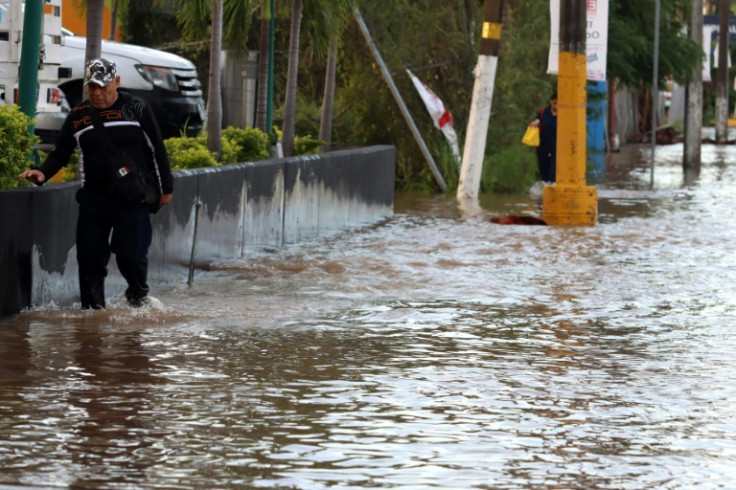
A region of South Florida saw record amounts of rain in just three hours on Tuesday evening, a one-in-a-thousand year event that caused flash floods and delayed hundreds of flights across the state.
According to NBC News, coastal areas in Sarasota saw almost 10 inches of rain during the mentioned period, and it can expect similar rainfall throughout the week. The weather system was caused by deep tropical moisture from a disturbance called 90-L and an area of low pressure.
The National Weather Service warned residents to expect over seven inches of rain in a prolonged heavy to excessive rainfall event across southern Florida for the next several days."
The flooding comes after parts of the state saw a months-long drought. Sarasota had seen 25 inches of less than it normally would since the start of the last year, the driest on record.
Florida has been experiencing more extreme weather events as the effects of climate change become more evident. Over the past weeks, the southern part of the state saw a string of record temperatures for this part of the year.
Florida saw its warmest year since 1895 in 2023, with surface temperatures reaching as high as 177 degrees Fahrenheit in certain areas. The state has been under the spotlight on this issue after Governor Ron DeSantis signed a bill preventing local authorities from passing legislation protecting workers against extreme heat.
The law, supported by business organizations and opposed by labor and environmental ones as well as Democrats, also prompted a broader conversation about what the standards are in the rest of the country.
Another effect is the increased pace of rising sea levels.A new report by the Miami Herald showed that over the past 80 years, sea levels have risen approximately one foot, with eight inches of that increase occurring in the last 30 years.
The next foot increase, however, is expected within 30 years. The next one 20 years later and the following one in just 10, according to projections by the National Oceanic and Atmospheric Administration (NOAA). The current trends are in line with the organization's higher projections.
South Florida also faces unique challenges, such as land subsidence, where parts of the land gradually sink. Although this subsidence is minimal, equivalent to the thickness of two credit cards over five years in some Miami Beach areas, it exacerbates the overall situation.
DeSantis also signed in May a bill removing climate change as a policy priority in the state, saying the decision "restores sanity in our approach to energy and rejects the agenda of the radical green zealots."
© 2025 Latin Times. All rights reserved. Do not reproduce without permission.





